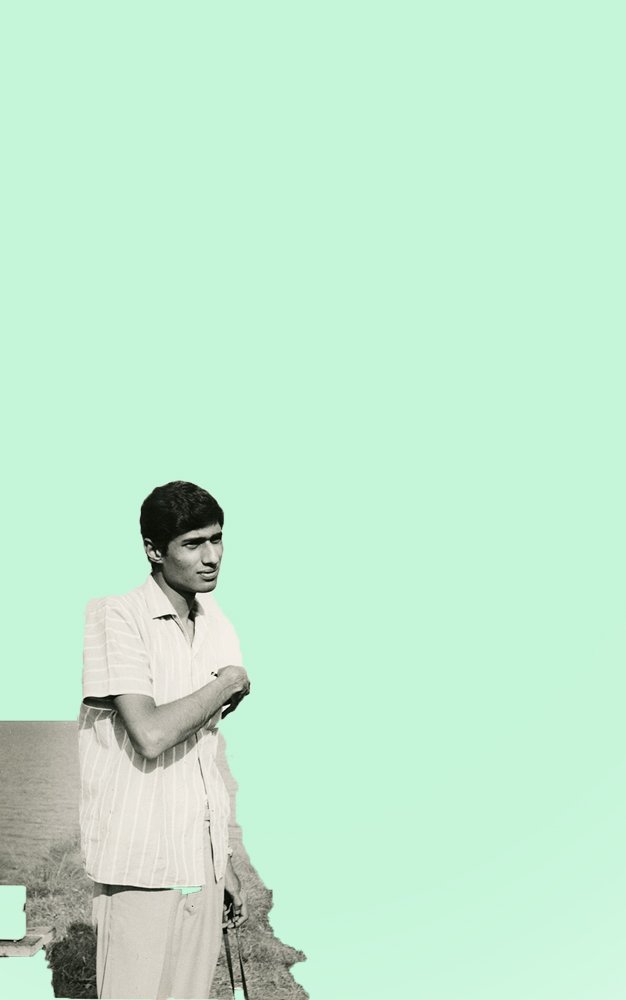SUNIL SHAH
On View: copeland gallery
Sunil Shah. Untitled, from the series, 1969
1969
After a decade of working with his own family archives, attempting to critique the documentary status of the photograph and its ability to represent the past, Shah has arrived at a position of ambivalence. In pursuing a refusal of victimhood (both from the perspective of author and subject), a continued resistance to the principles of institutional archives and the predominant representational mode in photography—all legacies, for Shah, of colonial logic—he sought to find an alternative visual strategy which could express his relationship to this history.
The work is an evolution from Uganda Stories, a photographic project which took as its focal point the forced displacement of Shah's family from Uganda in 1972. This former work told his family’s story through interview testimonies and visual metaphors created from cropped family album photos and found material. These archives, in their even more fragmented form, are now the basis for 1969, a deeper, more personal reflection that uses colour and abstraction as artistic methods to navigate the archive. Shah’s interventions with colour provide a psychic response to isolated details from these photographs. The works are not accompanied by explanations of the image content or details of individual stories—although these exist—rather, they are presented as singular studies and aesthetic propositions.
1969 is a component of Shah’s wider field of intellectual practice, writing and doctoral research which is influenced by Katherine McKittrick’s notion of Black Methodologies. This approach embraces refusal, and methods of disobedience to traditional disciplinary practices; an attempt, for Shah, to liberate his creative labour from oppressive systems of knowledge and power.

